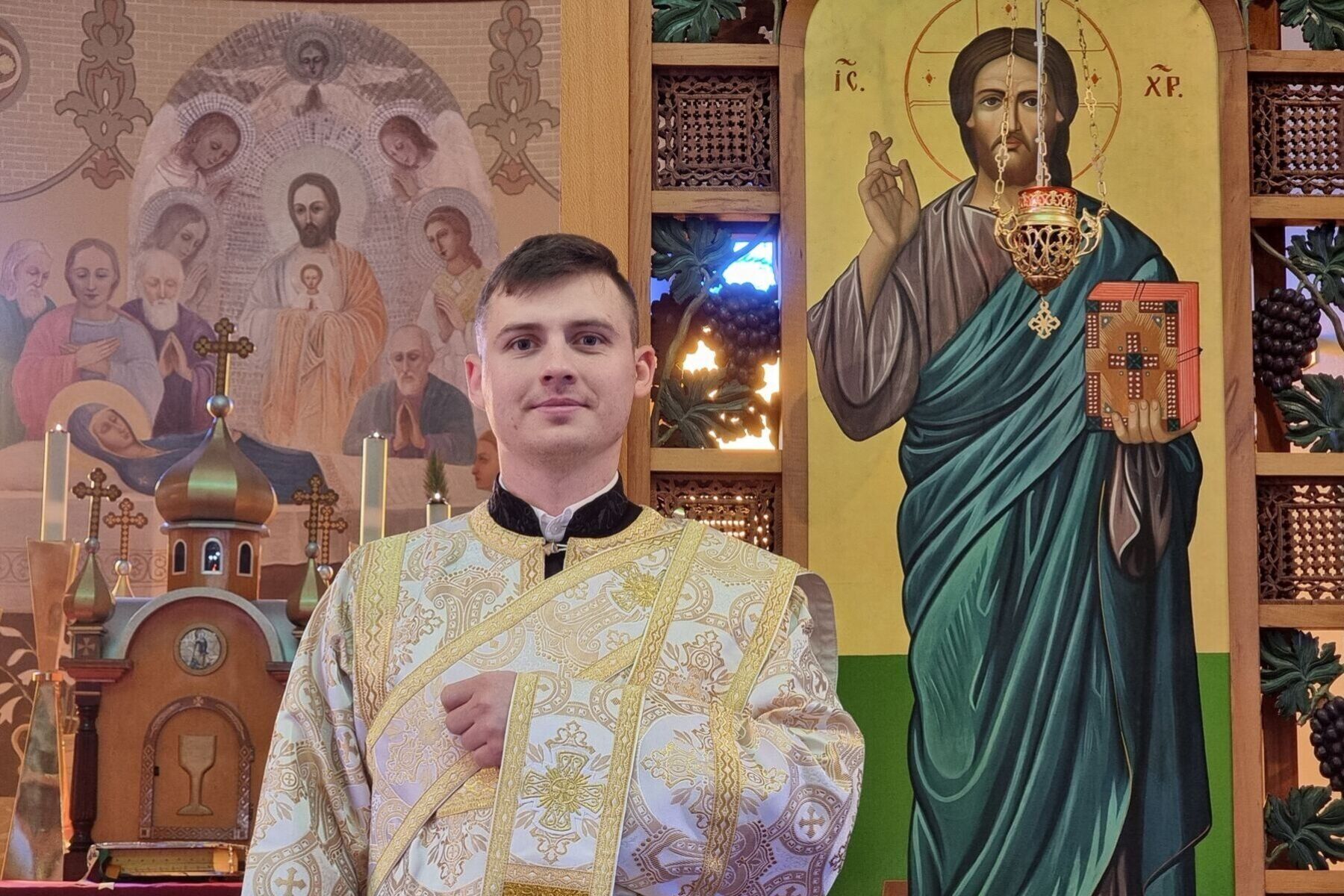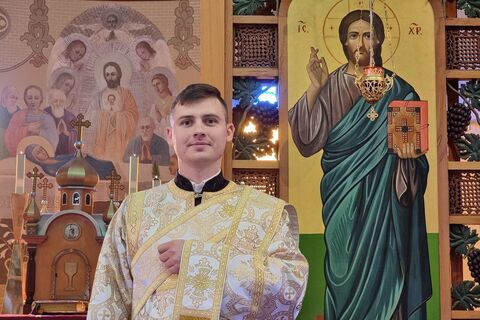Homily by Deacon Vitalii Leheta on the Fifteenth Sunday after Pentecost
September 20, 2025
May God grant each of us a foretaste of paradise on earth, and may our hearts be open to receive this gift. May our actions be filled with love for our neighbours, and may our hands be the hands of God through which the Lord will do good.

“Truly I tell you, some who are standing here
will not taste death before they see
the Kingdom of God having come in power.” (Mark 9:1)
Glory to Jesus Christ!
Dear brothers and sisters, today we hear the continuation of the theme of the cross. I want to share some thoughts on what today’s Gospel of Mark might mean for us.
In chapter 8, verse 34 of the Gospel, Our Lord Jesus Christ says, “If anyone wants to follow Me, let him deny himself, take up his cross and follow Me.” In the Greek text, the word “ἀπαρνησάσθω” [aparnisásthō] is used, which in the Ukrainian translation sounds like “deny”. What kind of denial is meant? It refers to the denial of one’s own will, the rejection of oneself and one’s desires, which often can lead us to what is actually not beneficial for us. Instead, that denial implies accepting the will of God, which always leads us to salvation. Here it is important to note and distinguish the will of God, which is present in all that is divine and directs us towards unity with Him—here on earth and ultimately and unchangeably in heaven. In contrast, God’s permission is not the will of God but only the direct will of man, which often contradicts God’s will: “…for the imagination of the human heart is evil from youth” (Gen. 8:21). And this is something completely different and stands in opposition to Peter, who just a few verses earlier (Mark 8:32) tried to “rebuke” Jesus from the cross. That is, it is the will of God, which perfects and completes all things, that must be the most important in our lives.
“To take up one’s cross” (Mark 8:34) in the era in which we live is perceived metaphorically. That is, we understand it as patiently and prayerfully bearing certain sufferings that occur in our lives. Often these may be wrongs done to us by our neighbours, permitted by God. However, in the time of Jesus, “to carry the cross” had a literal meaning. When representatives of the Roman Empire sentenced someone to crucifixion, he had to carry the crossbeam of the cross to the place of execution himself. Therefore, Jesus calls His followers to be ready even for death out of faithfulness to Him. And this readiness was witnessed by thousands of early Christians, especially up to the 4th century, and later, in the 20th century, by our own blessed new Ukrainian martyrs, whom the Russian totalitarian regime killed for their Christian faith and love for their Ukrainian people. And now, in the 21 st century, we are experiencing another wave of martyrdom in this Russian war in Ukraine. However, the Lord is always with us, and we must never abandon Him and should with faith ask Him for perseverance and the Christian virtue of hope.
And in today’s Gospel the Lord assures us that we have all the possibilities to be in the Kingdom of God. Because the Kingdom of God is, first of all, a spiritual state in which we find ourselves. It is the state of our soul—when we are one with Jesus through the Holy Sacrament of Confession and the Sacrament of the Most Holy Eucharist.
When we feel remorse that we have done something wrong towards our neighbour—let us come and ask their forgiveness, let us cast away pride, quarrels, and misunderstandings, let us not lay crosses upon others, but allow the spirit of peace to reign. “If you bring your gift to the altar and there remember that your brother has something against you… go first and be reconciled with your brother, and then come and offer your gift” (cf. Matt. 5:23–24). When we make our evening examination of conscience and notice that our inner voice reproaches us for something wrong we have done—let us not be afraid to approach the Sacrament of Reconciliation. Let us renew that Kingdom of God within our soul. Let us not be afraid to confess our sin before the Lord. For the Lord is the One who loves. He is like a loving mother who cares and worries for her child, wishing that everything would be the best for them. And in the words of the prophet Isaiah, we find God coming in the image of a mother: “Can a woman forget her nursing child, and not have compassion on the son of her womb? Though she may forget, I will not forget you” (Isa. 49:15).
Today I wish for all of us—and for myself in particular—to always seek the will of God in our lives, to sincerely experience confession and prepare well for it. May the Lord hear our prayers for Mother Ukraine, for just as she cares for us, so too are we called to remember her and to pray for her, as sons and daughters of hers. May God grant each of us a foretaste of paradise on earth, and may our hearts be open to receive this gift. May our actions be filled with love for our neighbours, and may our hands be the hands of God through which the Lord will do good. May our lips be enflamed with the Word of God so that we may fulfil the mission of preaching and spreading the Kingdom of God already here on earth.
So help us, holy God, Holy Trinity, and all the saints!


